- Home
- Peter Cawdron
Collision Page 4
Collision Read online
Page 4
“I’m a US citizen,” I say. “I demand to speak to someone from the US embassy.”
Chen picks up on what I’m doing and translates into Chinese, even though she knows I’m fluent. Together, we’re mounting a case to be heard.
“We’re doctors. We were transporting an injured man back to his tribal lands.”
I wait for Chen’s translation.
“If you contact the hospital in Bayingol, they’ll confirm everything I’m saying.”
Chen races through the Chinese version, adding a few extra details, including the name of the senior director and the address of the hospital.
“You have no right to hold us here against our will,” I say with a bluster of authority I don’t have.
After a few minutes, the steel door opens and a tall, lanky man walks in wearing civilian clothes—a tweed sports coat, white shirt, paisley tie and brown pants. He addresses me in English, but his accent is European. At a guess, he’s from Italy, or maybe Greece.
“Ah, Dr. Callie. Dr. Callie. Dr. Callie.”
Why he says my name three times is beyond me, but he looks pleased with himself. He’s holding my purse, looking down at my driver’s license, which enrages me. How dare he rummage through my belongings?
“You’ll have to forgive our security detail. They get a bit overzealous when Americans come crashing through the perimeter fence.”
“Fence?” I look at Chen. I need to stay calm. The last thing either of us needs is to enflame things further. There’s a time and a place for settling scores, and it’s clearly not here and now, but in my mind I’m already mounting legal action against this guy in court. Forgiveness is not on my mind.
He unlocks the cell door, saying, “Come. Come.”
“We didn’t see any fence.”
He hands me my purse.
“You flattened a ten foot high chain link fence and you didn’t notice?”
“No,” I say. My mind casts back to the dust storm. Visibility was almost zero. Sand drifts could have half buried the fence. We must have driven right over it without noticing, thinking the resistance the Land Cruiser felt was the wheels sinking in a shifting dune.
“I’m sorry for what happened,” he says.
“You shot us,” I say, not pleased by his apparent apology. “You assaulted us, and you detained us against our will.”
“My dear Dr. Callie, this is not America. Trespassing on military property is a serious offense in China. You were mistaken for spies.”
I’m incensed. “You could have killed us.”
“I regret the misunderstanding, but you did not follow our instructions. You ran toward our soldiers. They defended themselves.”
As far as I’m concerned, they were heavy handed, but I appreciate they didn’t use lethal force.
“Who the hell are you?” I don’t like this. The fake, warm, friendly show—glossing over what happened to us—a feigned apology. This guy is hiding something. He’s trying to smooth over what happened, and probably wants to brush us off and send us on our way, but he’s misread my mood. He might be able to deal with locals like this, but I’m pissed off.
“Please, come,” he says. “All will be explained.” Although I have my doubts about his sincerity. I wouldn’t trust this guy to tell me the time of day.
“Ax,” I say, standing in the open doorway of the cell. Ax is still sitting in the corner mumbling.
“No. He stays.”
“He does not,” I say. “He’s with us.”
“He belongs here.”
Ax looks at me with longing eyes. He’s been here before. There’s a helplessness in his rocking motion. Even with all the bluster and fight I’ve seen from him over the past day, he’s resigned to his fate.
“We know what’s going on,” I say, refusing to step out of the cell. The man’s demeanor changes. He’s not angry, but the facade is gone. “We have proof—evidence.”
His lips tighten.
“Ax,” I say again, holding out my hand. “It’s okay. I won’t let them hurt you.”
Ax gets to his feet and approaches slowly. He’s timid, moving like a caged animal. It’s as though he’s expecting to be beaten. He reaches out and takes my hand. I’m not sure how well he’s following the conversation as we’ve been switching between Chinese and English, but he seems relieved not to have been scolded.
“We came together,” I say. “We leave together.”
“That’s not possible,” the man says. I hadn’t noticed before now, but there are several other civilians and military officers standing on the far side of the open steel door watching us, listening in on the conversation.
“You clearly know who I am,” I say. “Think about the surname. Think about the name Callie. Think very carefully about where you’ve heard that name before.” But I offer no more explanation than that. I want the realization to hit hard. There’s a rushed discussion beyond the door.
The tall man is flustered. This isn’t what he expected. Apparently, I’m supposed to be compliant—grateful. Fat chance.
“I’m not playing games,” I say. “Tell me what’s going on. You will answer me, and you will set us free. All of us.”
Everything’s wrong. I cannot imagine why European scientists would work with the Chinese military. It makes no sense. Even the prospect of being freed seems false. I feel like we’re being marched toward a firing squad.
“Dr. Callie,” another man says, stepping through the doorway and walking toward us. “I’m Professor Johannes Goethe. This is Professor Marcelo Flores.”
“Johannes,” Flores says. “What are you doing?”
“We were never going to keep this secret forever,” he says. “Sooner or later, someone was bound to figure it out.”
“But she doesn’t know,” he protests.
“She knows enough,” he says, gesturing toward Ax. “And as for her father.”
“Her father?” Flores asks.
“My father is the US Secretary of State,” I say proudly. “If you think he doesn’t know precisely where my Land Cruiser was abandoned, and that I’ve gone missing, you are sorely mistaken. Call Beijing. Let’s see what they have to say about kidnapping the daughter of a senior US diplomat. Your own government will turn over every rock in this desert to find me.”
Flores shrinks a little.
“And my dad has the evidence,” I say, taking the initiative while I have them off guard. “I’ve emailed everything we have to him. Your secret is out. It’s over.”
I’m only guessing at their secret, and not sure what’s over, but right now I’m happy to bluff if that’ll get us out of here alive.
“Bring him,” Goethe says, pointing at Ax. He and Flores talk in hushed tones as they walk out of the cave. Ax is hesitant, but I keep a firm grip on his hand and pull him along with us. Chen looks at me. She’s nervous.
As we exit through the steel door, I notice sunlight streaming in from the opening of the main cave, but Goethe and Flores lead us deeper into the mountain. Flores, though, is pointing back at the opening, clearly disagreeing with Goethe about taking us with them. A raised boardwalk winds through the cave. Bundles of wires line the walls. Ax pulls away from me, wanting to head back toward the sunlight. “It’s okay,” I say, not wanting us to separate. He follows, but his eyes dart around. He’s scared. In the distance, there’s the hum of machinery and the crackle of electricity.
“You think you know what’s going on,” Goethe says, stopping in the entrance to a vast spherical cavern. “But you have no idea how much your world is about to change.” He gestures to a glowing, pulsating blue star floating in the middle of the chamber.
We’re standing on a steel walkway looking down into a cavern easily fifty yards wide. A thick glass pane set into a quarter-inch sheet metal frame separates us from the cavern itself, and I wonder how bright the star is as the glass is heavily tinted. As fascinating as the sight before me is, I’m more interested in the shielding provided by the glass, as that tells m
e something about what’s on the other side. Looking at the bottom of the frame, I can see how the glass distorts the rim. At a guess, the glass is easily two inches thick, and seems to have laminated layers, distorting the light.
“Radiation shielding,” Goethe says, noting my interest in the glass.
Around the cavern, rows of computer workstations and large wall-mounted monitors display a dizzying array of ever changing metrics. A bunch of probes and what looks like a satellite dish all point at the star. A mixture of military personnel and civilians are at work on computer terminals throughout the cavern, but all from behind thick glass shields.
“They shouldn’t be here,” Flores says. “This is too much. You should not have shown them without consulting the minister.”
Goethe raises a hand, speaking in gentle tones. “I think she can help us.”
“What is that?” I ask, turning my attention to the star.
“A multi-dimensional fracture in spacetime,” Goethe says, he raps the glass with his knuckles. “Emitting alpha and beta radiation, x-rays, gamma rays. You name it.”
Chen says, “I—I don’t understand.”
“Your friend,” Goethe replies, directing us to a boardroom set off to one side, built into an alcove within the cavern. “The Neanderthal. This is how he got here.”
“From the past?” I ask.
“Oh, no. Not the past. He is very much from the present. Just not the present as you know it.”
We enter the room and sit around the table. Chen and I choose seats allowing us to look out of the floor-to-ceiling windows at the magnificent blue star shining in the heart of the cavern. It seems to be turning, twisting slowly, but not around any fixed axis. It drifts rather than spins.
Ax sits next to me. He has his hands in his lap and his head bowed as though he’s expecting to be scolded. I touch his forearm, squeezing the dense muscle softly, trying to reassure him everything’s going to be fine, but I’m guessing—hoping. I have no idea what we’ve stumbled into. Optimism. It’s such a wonderful trait when everything goes well. When things go to hell in a handbasket, it’s nothing more than a delusion.
“What’s going on?” I ask, feeling overwhelmed.
“Worlds are colliding,” Flores says.
I’m dumbfounded. I understand the words he’s speaking but not the meaning. I comprehend each individual term, but the overall concept is madness. Worlds plural? How? The nearest planet to us is either Venus or Mars, depending on where we are in our orbit, but at their closest approach, they’re still thirty to forty million miles away, and never more than a tiny pinprick of light in the sky.
“We need your help,” Goethe says.
“Me?”
“Your father. He will believe you.”
“My father?” I reply, struggling to keep up with the conversation. I’m still hung up on the worlds colliding thing. “Wait. Explain this to me.”
Goethe says, “Imagine a stone being thrown into a pond. Ripples reverberate out from the center. As they move out, they become less intense, slowly fading into the background.”
“So that?” I ask, pointing at the star. “That’s the stone? The collision?”
“No. The collision hasn’t happened yet. You have to think in four dimensions, not three. This is where the collision will occur. This is a four-dimensional ripple. The closer we get to the point of contact, the more intense it becomes.”
“And this?” Chen asks. “How long has this been going on?”
“By our estimates, two hundred years.”
I’m stunned. Goethe wasn’t kidding about our ignorance.
“It took several years for us to pinpoint the location of the breach. We’ve been monitoring it directly for about three months now, but it’s easily a few centuries old.”
Flores says, “Pockets rupture all the time around the globe, but this is the only point of continuous presence.”
“All the time?” I ask. “That’s not possible. I’m pretty sure no one’s ever seen anything like this before.”
“Haven’t they?” Goethe asks. “You’re thinking too small. You’re thinking of a blue light in a cave. Think in four dimensions.”
I say, “If one of these things appeared in the middle of a city, it would be all over the news.”
“Too small. Too small,” Flores says, waving with his hands and getting excited. “Urban areas account for only three percent of Earth surface. Did you not hear him? You’re thinking too small. Think in four dimensions. You and your stupid cities. You’re thinking in only two dimensions. Even in three dimensions the magnitude of the problem is obvious.”
I’m lost.
Goethe is more composed. “Ruptures happen all the time. A patch of air is displaced thousands of feet above the ground and a plane passes nearby, experiencing turbulence. A section of the mantle is swapped between worlds and the different densities and changes in composition cause an earthquake, which is attributed to natural causes. A sphere of water in the sea is switched and ocean currents are disrupted as a rogue wave forms on the surface.”
“Someone would notice,” I say, not finding their explanation credible. “If you’re right, and this thing has been going on for hundreds of years, then at some point there must have been some impact on human civilization.”
“Oh, and there has,” Goethe says. “In 1945, a squadron of five fighter planes was lost over the Atlantic.”
“You’re talking about the Bermuda Triangle?” I say, incredulous that a childhood myth could be brought into the discussion.
“The same day, a sea plane dispatched to look for the missing aircraft also vanished.”
“What is this? An episode of The Twilight Zone?”
Goethe isn’t deterred. “Six disappearances in four years, and then nothing. For us, that’s characteristic of a fracture opening and closing.”
“I—I.” I don’t know what to say. I’m not convinced. “How can you be so sure? Who’s to say there’s not some other explanation and that you’re jumping to conclusions?”
Flores raises an eyebrow. “Says the woman sitting next to a Neanderthal.”
“Okay, you’ve got a point, but I don’t see why there couldn’t be a perfectly logical natural explanation for this.”
Goethe laughs. “This is a perfectly logical natural explanation.”
Flores says, “A couple of years ago, the Plague broke out nearby. Where do you think that came from?”
He’s right. I’m silent.
Goethe says, “In the 70s, climbers spotted signs of a Yeti on the northern slopes of the Himalayas. But scientists dismissed the idea because breeding populations would be too small for such an animal to go undetected in the 20th century, and they’re right. But a few individuals dragged through a fracture is entirely plausible.”
I ask a question that seems absurd to me, knowing it’s probably validating their point of view but wanting to be sure. “So something like the Loch Ness Monster?”
Flores says, “A subsurface aquatic fracture with a world that still harbors the plesiosaur.”
Goethe adds, “It probably wasn’t one plesiosaur, but several over an extended period of time. They would have swum through looking for prey. They’re bottom feeders. They would have left when they found the loch devoid of squid and large mollusks.”
“But not before posing for photographs,” I say, unsure whether I’m being sarcastic or stating the obvious.
Goethe shrugs.
“Your world is in danger,” Flores says.
“Wait a second. What did you say?” I ask.
“The danger is real.”
“No, not that. Why did you say, your?”
Goethe smiles. “The Neanderthal isn’t the only one to come through a portal.”
The hair on my arms stands on end. “No, no, no.”
“On our Earth, the Second World War ended in 1957 with the defeat of the Greater German Axis and the capitulation of Moscow.”
Flores says, “We put a wo
man on Mars back in 1998.”
“She died,” Goethe offers. “But she made it to the surface, and others followed after her in 2010, establishing our first off-world colony.”
Chen says, “So there are other worlds like ours?”
“Yes and no,” Goethe replies.
I say, “You mean, somewhere out there, all this is playing out again on some other world, but with just a few slight differences?”
“No. It is not as you imagine,” Flores says.
Goethe explains, “Picture a tree. When branches diverge near the trunk, they’re close to each other, but as one branch leads to another and then another, they move further apart.”
The look on my face must signal my confusion as he adds, “These worlds have been diverging for billions of years.”
“How many?” I ask, still perplexed by the scale of what’s being described. “How many Earths are there?”
“We don’t know. How many stars are there? There comes a point where you stop counting.”
“And Ax,” Chen asks. “He’s not from another time, but another place, right?”
“Same time, but from a world where Homo sapiens went extinct.”
I shake my head.
Flores says, “There are worlds where dinosaurs still roam the planet.”
Goethe says, “And worlds where Earth is as barren and lifeless as Mars.”
“What’s causing this?” I ask, pointing at the blue star.
“We don’t know. Our world has been ravaged by the rift. We came here looking for answers.”
I look up at the Chinese military officer standing in the doorway and suddenly everything becomes clear. We. Goethe isn’t referring to himself and Flores. They’re all from another world. Goethe senses the realization sweeping over me.
“Everything you see here. Everyone. They’re all from our world.”
Chen asks, “How have you kept this secret from the Chinese government?”
Flores says, “We have a healthy working relationship.” Given that no expense has been spared in this subterranean base, I get the feeling the health of the relationship is based on some ubiquitous form of wealth shared between worlds. Gold? Platinum? “We’ve approached the US government, but been rebuffed.”

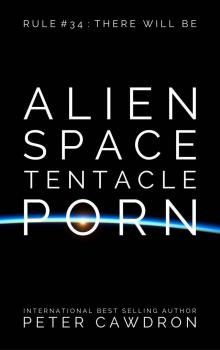 Alien Space Tentacle Porn
Alien Space Tentacle Porn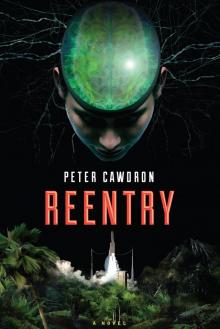 Reentry
Reentry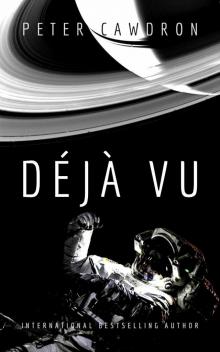 Déjà Vu (First Contact)
Déjà Vu (First Contact)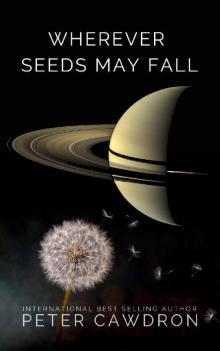 Wherever Seeds May Fall (First Contact)
Wherever Seeds May Fall (First Contact) But The Stars
But The Stars Trixie & Me
Trixie & Me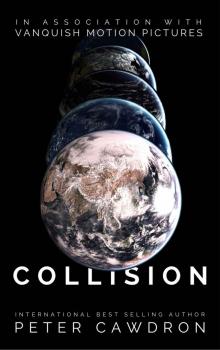 Collision
Collision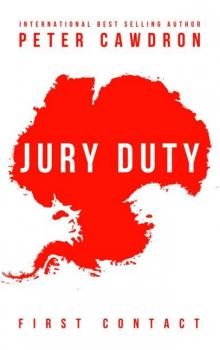 Jury Duty (First Contact)
Jury Duty (First Contact)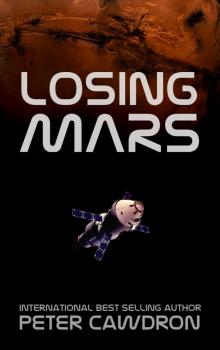 Losing Mars
Losing Mars We Are Legion (van Helsing Diaries Book 2)
We Are Legion (van Helsing Diaries Book 2) Van Helsing's Diaries (Books 1-3): Nosferatu
Van Helsing's Diaries (Books 1-3): Nosferatu Shadows
Shadows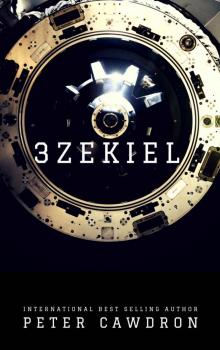 3zekiel (First Contact)
3zekiel (First Contact) Vampire (van Helsing Diaries Book 1)
Vampire (van Helsing Diaries Book 1) Xenophobia
Xenophobia All Our Tomorrows
All Our Tomorrows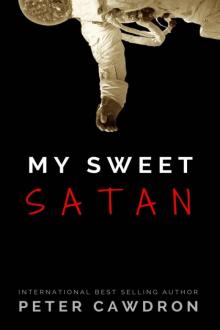 My Sweet Satan
My Sweet Satan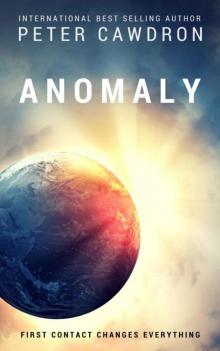 Anomaly
Anomaly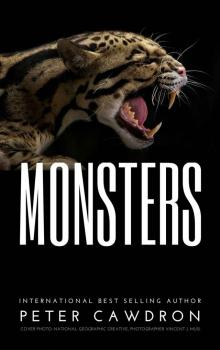 Monsters
Monsters